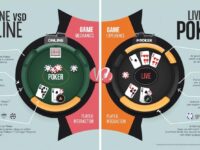Poker, a game steeped in tradition and strategy, has long captivated players with its blend of skill, luck, and psychology. Whether it’s a friendly game around the kitchen table or a high-stakes tournament in Las Vegas, poker appeals to a wide range of enthusiasts. However, there is a distinct divide in the motivations of players: those who play for fun and those who play for profit. This article explores the delicate balance between these two approaches, examining the thrill of poker as entertainment and the allure of pursuing poker as a lucrative endeavor.
The Thrill of the Game: Poker for Entertainment
For many, poker is synonymous with entertainment—a social activity that brings people together for a night of lighthearted competition and camaraderie. The casual nature of home games often emphasizes enjoyment over cutthroat tactics, allowing players to engage with the game without the pressure of financial gain. In this setting, poker serves as a medium for storytelling, laughter, and shared experiences, where winning or losing takes a back seat to the social aspects of the game.
The appeal of poker as entertainment also lies in its ability to challenge the mind. Even in a relaxed atmosphere, players must exercise strategic thinking, memory, and bluffing skills, all while managing unpredictability. This intellectual engagement provides a stimulating experience that can be both satisfying and invigorating. It’s a game that encourages players to hone their skills, but without the stress and intensity associated with professional play.
Moreover, poker for fun allows for creativity and experimentation in gameplay. Without the burden of financial stakes, players feel free to try unconventional strategies or make daring bluffs, adding an element of excitement and unpredictability to the game. This freedom fosters a unique environment where each hand can become a memorable moment, contributing to the overall enjoyment of the poker-playing experience.
High Stakes: The Quest for Poker Profits
In contrast, for some, poker is more than just a leisurely pastime—it is a serious pursuit with the potential for significant financial rewards. Professional poker players dedicate substantial time and effort to mastering the game, studying odds, and developing advanced strategies to gain an edge over their opponents. For these individuals, poker represents a career, one that demands discipline, patience, and a deep understanding of the game’s nuances.
The quest for poker profits often takes players to high-stakes tables, where the pressure is immense, and the competition is fierce. In this environment, every decision can have substantial financial implications, leading to a game where psychological resilience is as crucial as technical skill. The adrenaline rush of playing for large sums of money can be addictive, driving players to continually refine their game in pursuit of bigger wins and more significant achievements.
However, the path to profitability in poker is fraught with challenges. Variance—the inherent unpredictability of the game’s outcomes—can lead to extended periods of losses, testing even the most seasoned players. To succeed, players must not only be skilled but also possess the mental toughness to withstand the ups and downs of the game. Despite the risks, the allure of poker as a profession continues to draw many enthusiasts, each hoping to turn their passion into a profitable venture.
Ultimately, the choice between playing poker for fun or for profit is a personal one, shaped by individual goals and motivations. While casual players revel in the social and intellectual aspects of the game, professionals are drawn to the challenge and potential rewards of high-stakes play. Each approach offers its own set of thrills and challenges, making poker a versatile and enduring pastime. Whether for amusement or income, poker remains a captivating game that continues to intrigue and inspire players around the world.



















0 Comments